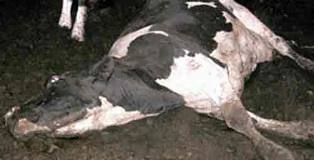 Corporate spinmeisters may take note of a new study out this month by University of Missouri and University of Singapore researchers. They studied readers' reaction to various news articles and found that the subtle way in which journalists report on crises -- like oil spills, plane crashes or product recalls -- can affect the public's attitude towards the corporation involved in the crisis. Not surprisingly, the public tends to respond more favorably towards a corporation if the story is given a "sadness-frame," meaning if it centers around the plight of the victims and how relief is being delivered. By contrast, if a story focuses on the corporation's contribution to the crisis, including laws that were potentially broken and possible punishment, it elicits a more negative attitudes towards the corporation. The research may prove useful to corporate criminals as well as accident-prone industries. "It is important for corporations to put on a human face during crises," Cameron said. "If a corporation can focus on the well-being of the victims and how the corporation will improve following the crisis, they have a better chance of influencing 'sadness-frame' news coverage as opposed to 'anger-frame' coverage. If the news coverage remains 'sadness-framed,' public perception will stay more positive." Watch for this spin in your local news and keep us informed at PRWatch.org.
Corporate spinmeisters may take note of a new study out this month by University of Missouri and University of Singapore researchers. They studied readers' reaction to various news articles and found that the subtle way in which journalists report on crises -- like oil spills, plane crashes or product recalls -- can affect the public's attitude towards the corporation involved in the crisis. Not surprisingly, the public tends to respond more favorably towards a corporation if the story is given a "sadness-frame," meaning if it centers around the plight of the victims and how relief is being delivered. By contrast, if a story focuses on the corporation's contribution to the crisis, including laws that were potentially broken and possible punishment, it elicits a more negative attitudes towards the corporation. The research may prove useful to corporate criminals as well as accident-prone industries. "It is important for corporations to put on a human face during crises," Cameron said. "If a corporation can focus on the well-being of the victims and how the corporation will improve following the crisis, they have a better chance of influencing 'sadness-frame' news coverage as opposed to 'anger-frame' coverage. If the news coverage remains 'sadness-framed,' public perception will stay more positive." Watch for this spin in your local news and keep us informed at PRWatch.org.

 A downer cow at a California dairy was
A downer cow at a California dairy was  Corporate spinmeisters may take note of a new study out this month by University of Missouri and University of Singapore researchers. They studied readers' reaction to various news articles and found that the subtle way in which journalists report on crises -- like oil spills, plane crashes or product recalls -- can affect the public's attitude towards the corporation involved in the crisis. Not surprisingly, the public tends to respond more favorably towards a corporation if the story is given a "sadness-frame," meaning if it centers around the plight of the victims and how relief is being delivered. By contrast, if a story focuses on the corporation's contribution to the crisis, including laws that were potentially broken and possible punishment, it elicits a more negative attitudes towards the corporation. The research may prove useful to corporate criminals as well as accident-prone industries. "It is important for corporations to put on a human face during crises," Cameron said. "If a corporation can focus on the well-being of the victims and how the corporation will improve following the crisis, they have a better chance of influencing 'sadness-frame' news coverage as opposed to 'anger-frame' coverage. If the news coverage remains 'sadness-framed,' public perception will stay more positive." Watch for this spin in your local news and keep us
Corporate spinmeisters may take note of a new study out this month by University of Missouri and University of Singapore researchers. They studied readers' reaction to various news articles and found that the subtle way in which journalists report on crises -- like oil spills, plane crashes or product recalls -- can affect the public's attitude towards the corporation involved in the crisis. Not surprisingly, the public tends to respond more favorably towards a corporation if the story is given a "sadness-frame," meaning if it centers around the plight of the victims and how relief is being delivered. By contrast, if a story focuses on the corporation's contribution to the crisis, including laws that were potentially broken and possible punishment, it elicits a more negative attitudes towards the corporation. The research may prove useful to corporate criminals as well as accident-prone industries. "It is important for corporations to put on a human face during crises," Cameron said. "If a corporation can focus on the well-being of the victims and how the corporation will improve following the crisis, they have a better chance of influencing 'sadness-frame' news coverage as opposed to 'anger-frame' coverage. If the news coverage remains 'sadness-framed,' public perception will stay more positive." Watch for this spin in your local news and keep us